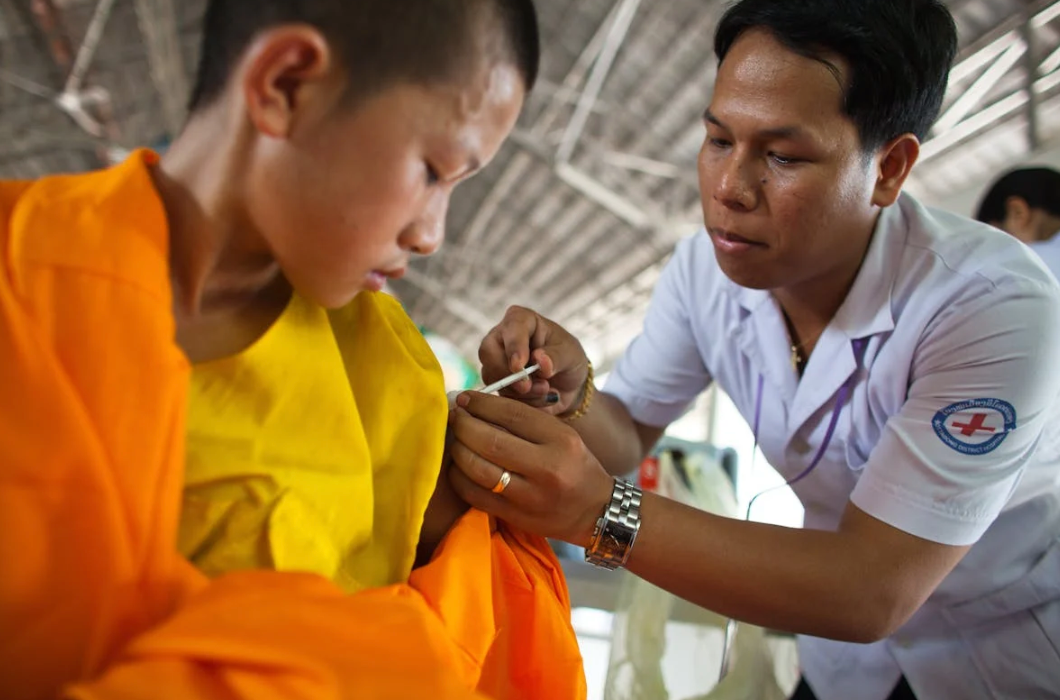
Nicole Nguyen
•
October 31, 2025
A receptive bilingual is one who can understand another language but cannot speak it fluently or at all.

“Thank goodness you’re here today. Dr. C is out of office today, so we really need you!”
I was then rushed into an examination room, where I met an elderly woman and the nurse practitioner who promptly started the appointment. Still clutching my backpack and lunchbox, I stuttered, introducing myself to the patient. I only ever spoke Cantonese with my mother’s family, who were a part of the Chinese immigrants to Vietnam. Not only that, much of the Cantonese I know is influenced by Vietnamese, meaning that there will be variations between my Cantonese (the “wrong” way) and the patient’s Cantonese (the “right” way). This difference was made very obvious through several instances, such as when I instructed the patient to “drink” instead of “eat” her medications. Needless to say, my chaotic first day at the clinic introduced me to one of the most rewarding experiences of my medical journey - an opportunity that illustrated my values and how I hope to incorporate them into my practice.
Weeks before my first day there, I felt that I was doing a disservice to myself and others by avoiding the clinic to focus on my research during my gap years at the National Institutes of Health. As an MD/PhD applicant at the time, I struggled to strike that balance between the clinic and the lab that physician-scientists preached. I, then, found this clinic that predominantly served the lower-income Chinese community, conveniently noting that they were looking for Cantonese-speaking volunteers. With a brief email exchange, I was assigned to scribe for Dr. C, as I was the only volunteer who knew Cantonese.
An all-too-familiar concept among Asian-Americans of our generation: receptive bilingualism. Understanding what’s spoken to you in your native language but not being able to say anything back. We have a go-to catchphrase among us American Born Chinese (ABCs) that summarizes this - Sik teng, mm sik gong, basically meaning “I know what you’re saying, but I don’t know how to respond” (in Cantonese, that is).
Slowly but surely, I recovered some of my Cantonese (and sometimes, even Vietnamese) fluency and learned the appropriate medical terminology. Most of the patients I met were just happy to know that I shared Cantonese heritage with them, as equal representation and language barriers still remain a prevalent issue in this community.

Before I knew it, my time at the clinic came to an end. Through APAMSA and global health trips, I remain actively engaged with the Asian-American communities here in San Antonio as one of the Community Outreach leaders for our chapter, maintaining what I learned at this clinic but also picking up new phrases in other languages.
Whenever I doubt my abilities, I always remind myself of one particular moment with a patient at the clinic. At the beginning of their appointment, they asked if I knew Cantonese, to which I responded with my usual line, “Sik teng, mm sik gong”. Instead of expressing disappointment, they warmly replied, “Being able to listen is enough.”